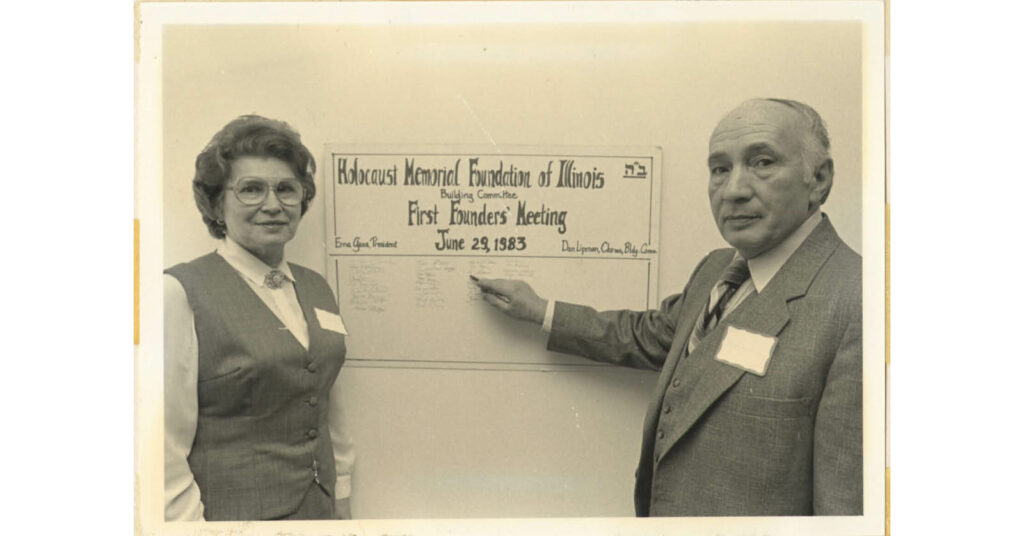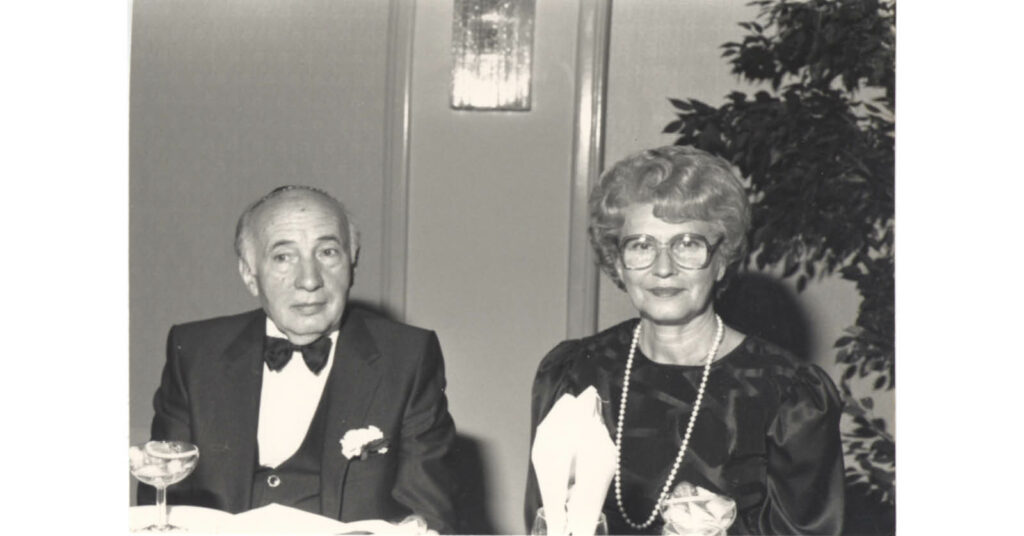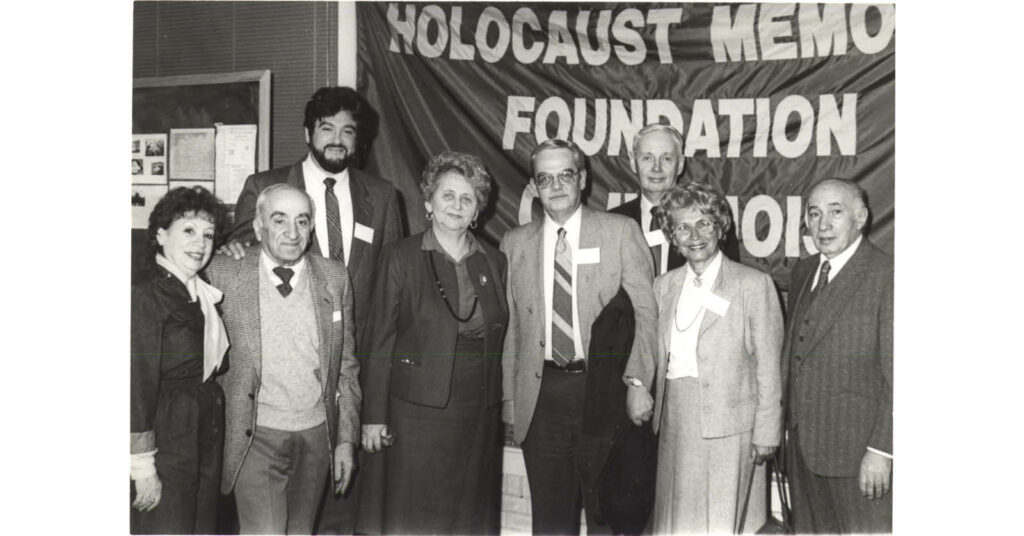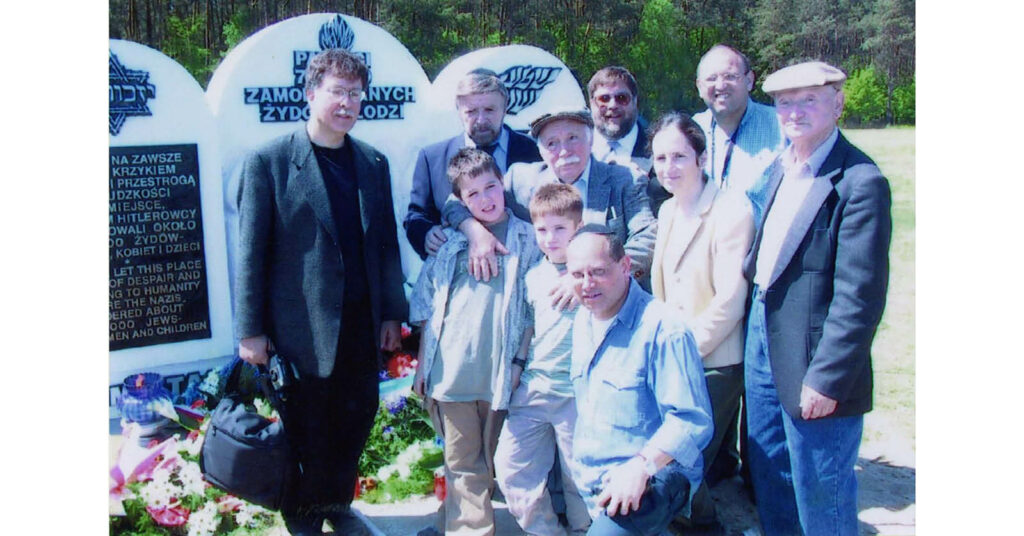Survivor Profiles: Earl “Al” Lachman
This should be a lesson for children, for everybody, to be better when the government cause is bad or inhumane, of what could happen to all mankind, not only to us.
Earl “Al” Lachman
Earl “Al” Lachman was born in Poland in a small town near the German-Polish border in 1918. He grew up in an Orthodox Hasidic family with one older brother. His father was a cake-baker and candymaker, and Al enjoyed helping him out whenever he could. The family moved to Lodz in 1930 where Al had five uncles and aunts and many cousins. His mother passed away in 1932 from a heart condition. Soon after, when Al turned 15, he went to work at a small knitting business.
In 1939, when the Germans invaded, Al went to Warsaw with friends to fight to defend Poland. When Poland surrendered, Al made his way back to Lodz. Jews were forced to wear yellow stars, and Al recalled that any German soldier could kick them off the sidewalk. The Germans started to deport large numbers of Jews from Lodz, and Al ended up in Rzeszów for a time. The local community offered to transport people across the border to the Soviet Union, but Al realized he didn’t want to leave his family behind and leapt from the wagon he was riding. Instead, he returned to Lodz and moved into the Jewish ghetto with his father and uncles.
He continued to make and distribute candy through the ghetto underground. Though he was once caught, the officer chose not to report him and let him go. In 1942, Al watched most of the children and elderly in the ghetto board trains, assuming they would go somewhere with better conditions, but the trains instead took them to Chelmno. Al lost his father and brother alongside much of the Jewish population of Lodz. Though he had just been arrested again, Al avoided deportation because another policeman, a cousin of his sister-in-law, helped him by releasing him back into the ghetto.
In August 1944, Al was packed into a cattle car and sent to Auschwitz. The car was so crowded that people nearly fell out as they traveled. He recalled that when he arrived at Birkenau, people asked Poles working outside the window where they were going, and they simply pointed at the sky and said, “You’re going to heaven.” Al described the train ride and arrival in Auschwitz as his worst memory.
After surviving the first selection, Al slowly came to understand the horrors that were taking place at Auschwitz. Though he got more food in Auschwitz than in the ghetto, Al remembers that he felt so anxious that he couldn’t eat anything and gave his meagre rations to his cousins.
After only 10 days in Auschwitz, Al was placed onto a transport that took him to Kaufering, where he became very sick. He was extremely malnourished by the time he was transferred to Dachau in late April 1945. When the inmates were ordered to disembark the train and march, Al laid down and hid among the corpses because he was so weak he was worried he would be killed. He was eventually brought into Dachau, given a real shower, and the first new piece of clothing he had received since he arrived in Auschwitz. Al said that though the starvation in the camps was horrible, the conditions and the lice that covered his body day in and out were just as bad.
Only a few days later, the Americans liberated Dachau. Al felt no joy upon liberation because he was simply too exhausted. The Americans tried to feed the starving inmates, but some of them were so malnourished that they died upon eating the food provided by the liberators, which made the surviving inmates distrustful. Al recovered slowly and stayed there until July.
After another stay in a hospital outside of Dachau, Al went to live in Sweden. While there, he met and married his wife, Judy, and their first son was born. They immigrated together to the United States and settled in Skokie in 1953, where they had their second son. Al and Judy were founding members of the Holocaust Memorial Foundation of Illinois. Al was a member of the executive board and later became a co-founder and honorary Vice President of IHMEC. He passed away in 2015.
Learn More:
Chicago Sun-Times story Oral history interview with Al Lachman
Photograph of Yezachmil David Lachman, Al Lachman’s grandfather, from the late 1800s.
View this artifact >>

Judy and Al Lachman signing their names at the Holocaust Foundation of Illinois’ First Founders’ Meeting on June 29, 1983.
View this artifact >>

From left to right: Al Lachman, Judy Lachman, Allen Zendel, unknown, and Erna Gans at an early Holocaust Foundation of Illinois Meeting in 1983.
View this artifact >>

Al and Judy Lachman together in 1987.
View this artifact >>

From left to right: Bela Korn, Allen Zendel, unknown, Eran Gans, unknown, unknown, Judy Lachman, and Al Lachman at a Holocaust Memorial Foundation dinner in 1986.
View this artifact >>

Al Lachman (center) in 2001 surrounded by his family at the Pamiecei Memorial at Chelmno, which he helped design in honor of his father, brother, and all the Jews of Lodz who were murdered there.
View this artifact >>
